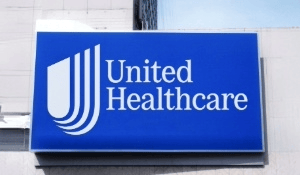Medicare Monday: UnitedHealthcare's Turmoil—What It Means for Seniors

UnitedHealthcare (UHC), one of the nation's largest health insurers, is currently under intense scrutiny. A string of serious incidents—from a tragic leadership loss to ongoing fraud investigations—is raising important questions for Medicare beneficiaries and the healthcare industry as a whole.
UnitedHealthcare CEO Fatally Shot
In December 2024, UHC's CEO, Brian Thompson, was tragically shot and killed in Midtown Manhattan. The suspect, Luigi Mangione, was later arrested and charged with murder. The shooting occurred outside a hotel where UnitedHealthcare was holding an investors' meeting. This high-profile event deeply shook the company and raised serious concerns about stability and security at the highest levels of one of America’s largest healthcare providers (BBC).
DOJ Medicare Fraud Investigation
The U.S. Department of Justice is currently investigating UnitedHealthcare for potential Medicare fraud. The focus? Allegations that the company inflated risk scores for Medicare Advantage members to increase federal reimbursements. This criminal investigation underscores growing concerns about transparency and ethics in the Medicare Advantage space (WSJ).
Secret Deals with Nursing Homes
A Guardian report revealed that UHC allegedly paid nursing homes to reduce hospital transfers of residents under their Medicare Advantage plans. While UHC claimed these programs aim to improve care, the hidden nature of these agreements calls transparency into question. In some cases, patients were reportedly denied emergency hospital care, potentially jeopardizing their health (The Guardian).
Stock Decline and Leadership Shake-Ups
Amid mounting legal concerns, UHC’s stock has dropped over 36% in 2025, spurring investor anxiety. The turbulence has also led to internal shifts, including the resignation of CEO Andrew Witty (Investopedia).
UHC Stops Paying Part D Commissions
In another shift, UnitedHealthcare announced it would eliminate commissions for agents selling new Medicare Part D plans after June 1, 2025. For consumers, this may mean fewer agents will present or even discuss UHC drug plans—limiting visibility and choice during Medicare enrollment season (InsuranceNewsNet).
What This Means for Medicare Beneficiaries
These developments are more than just headlines—they have real consequences for seniors navigating Medicare. With the elimination of commissions for Part D plans, many independent agents may no longer present or recommend those options, meaning seniors could miss out on plans that are actually a good fit. Meanwhile, the ongoing fraud investigations and reports of secretive deals with nursing homes erode public trust in a system that’s supposed to prioritize care. Perhaps most concerning are the alleged efforts to reduce hospital transfers, which raise red flags about the quality and urgency of care some seniors are receiving.
Our Take: Trust and Transparency Matter
At FYInsurance Solutions, our focus has always been on putting people over profits. In a time when major carriers are making decisions that prioritize shareholders over seniors—eliminating commissions, facing fraud investigations, and quietly making behind-the-scenes deals—we believe the role of independent brokers is more important than ever.
When consumers don’t have access to unbiased information or aren’t even told about certain plan options, their ability to make the best healthcare decisions is compromised. Seniors deserve more than generic call centers and one-size-fits-all advice. They deserve advocates who listen, explain, and help them weigh options based on their specific needs—not what benefits the carrier most.
That’s why we stay transparent, up-to-date, and client-focused. We believe in giving our clients the whole picture—even when it means having tough conversations about industry changes.
📩 Have questions about your Medicare coverage? Reach out—we’ll walk you through your options.
And if you've been impacted by any of these changes, or simply have thoughts, concerns, or experiences you'd like to share, we want to hear from you. Your feedback helps us better understand what Medicare beneficiaries are facing and how we can advocate more effectively on your behalf.



